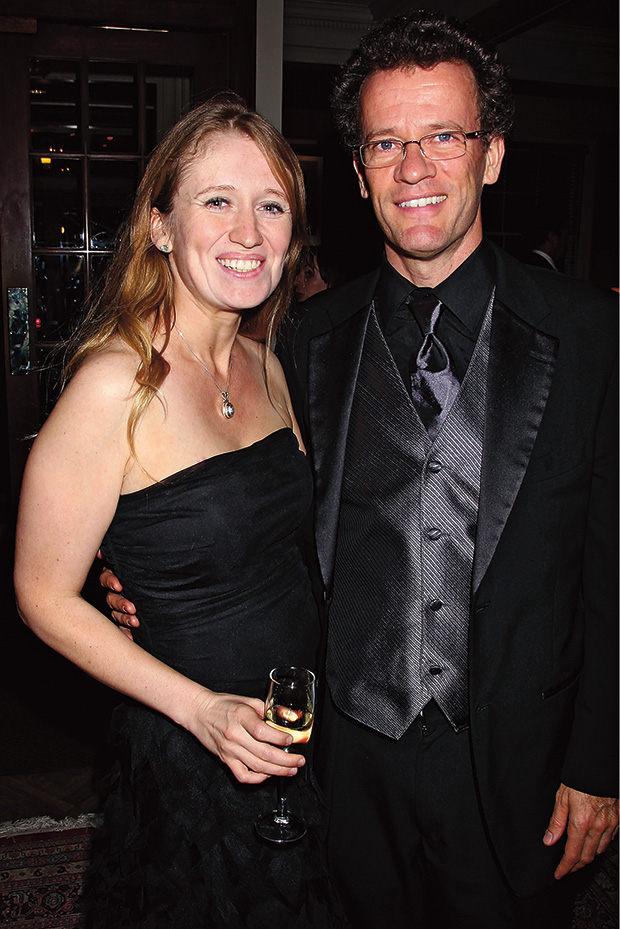At 16 I went off to boarding school. It was a mixed blessing. It was nice to get a bit of distance from my parents, though we got along very well. On the other hand, it wasn’t necessarily a fun experience. Boarding school is an intense place. You have intense friendships but you also have intense friction, whether with teachers or fellow students. When I look at my young self, I was bright but not very wise. Sometimes I find intelligence is a treacherous trait. Often when you’re bright it’s an excuse to be arrogant and thus not self-reflective. You have this sense you’re right, which is not always the case. I think it slightly hindered my emotional growth. I didn’t see that being right wasn’t the be all and end all. Getting along with people means surrendering a bit more, opening up to other people.
When I was 16, I dreamt more of being prime minister rather than being a writer. I was very taken with the Canadian prime minister, Pierre Trudeau, a very charismatic, handsome, well-read leader. And I was taken in by the theatre of party politics. I realise now that was my artistic sense trying to find a home. I wasn’t interested in public policy. But it was only when I studied literature I started thinking of writing and even then, I was working through my fear of the working world. I was writing to cope with my anxiety about what to do when I had to get real.
I started writing at 19 and, looking back, I think that was a bold move. The world will always tell an artist, we don’t need another artist. We don’t need another writer, another painting, another piece of music. What do you have that’s so special? But I carried on, and I think doing that, in the face of the indifference of the world, takes a certain pigheadedness. I was willing to put all my eggs in one basket, to give everything of myself – because that’s what a writer has to do – and I think that was brave.

I wish I hadn’t been so middle-class in my choices. When I was 19 I read a book by the Japanese writer Mishima, called The Sailor Who Fell from Grace with the Sea. The main character is a sea captain and I had this idea I could join the merchant marines. I looked into the options in Canada and found the average age for joining was 16, so I decided I was too old. Crazy, at 19 I was still a kid! I should have swallowed my pride and done it… Instead I stayed at university and got my philosophy degree. I wish I’d taken that little leap of faith. Because I took very middle-class choices, and I wish I’d broken from that.
Discovering India was a big thing for me. I’ve always loved travelling, backpacking has been one of the defining experiences of my life. Seeing the different – and the same – ways of being across continents, you begin to get an idea of what is real and constant, and what is acquired and regional. Some countries speak to you more strongly than others. I remember getting out of the plane in India and this wall of heat hitting me, and I found it absolutely electrifying. I loved everything about India. I always felt at home with its contradictions. It made me see the link between animals and the sacred. That realisation has played a big part of my work.
It’s fine being in your 20s, poor and living your dream. But by the time you get to 40, poverty just sucks.
My 16-year-old self would be insulted by the idea I would become religious. I was brought up to think religion was for the intolerant, the ignorant, the uneducated. It was sexist, homophobic, patriarchal. I was hopeful that this disease of the soul would go the way of slavery. It took that visit to India for me to see that wasn’t the whole picture. Now I choose to have faith. I love the stories and metaphors in religion. I don’t like the Pope in Rome and his teachings, but he doesn’t corner the market. Nor some rabbi, or some mullah… they don’t own the scriptures. I don’t want to be a prisoner of reason. There is a part of us which rationality doesn’t explain, like falling in love. Now I see religion as a cousin to art and literature. Both involve a suspension of disbelief. If you’re reading Harry Potter, you suspend your disbelief in magic, and then the joy comes. It’s the same with religious faith.









